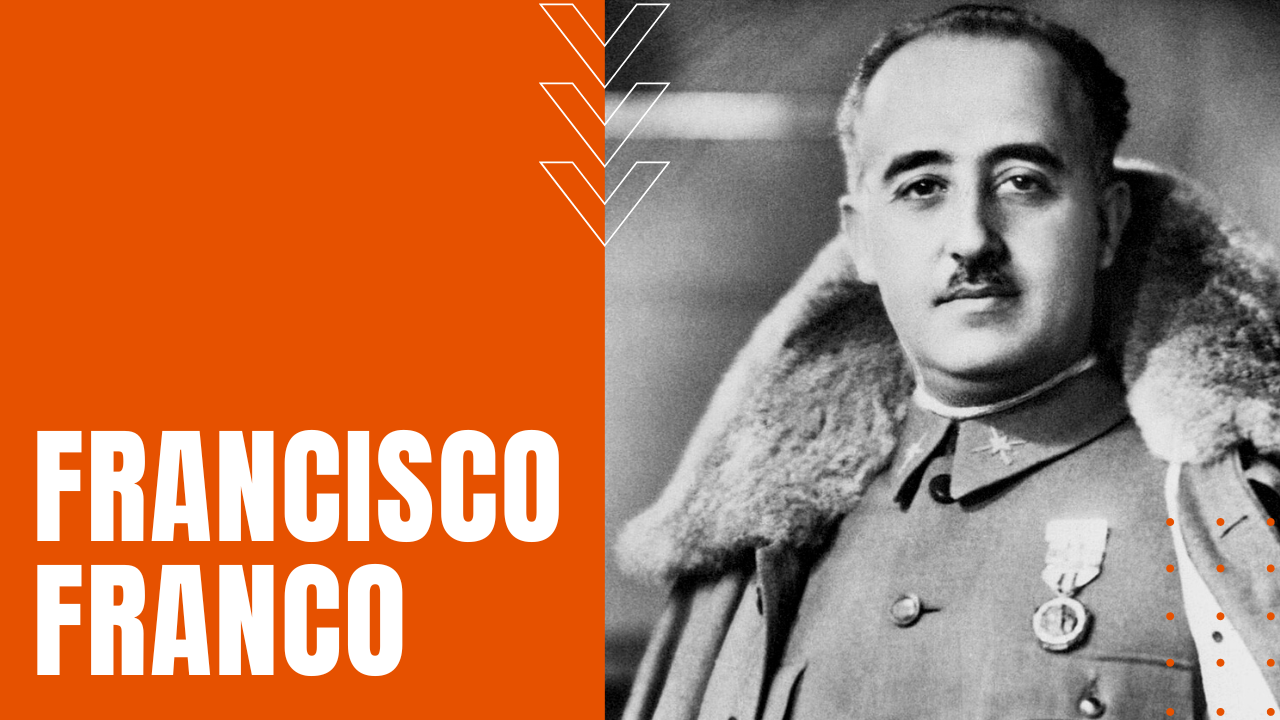Francisco Franco: Dictator of Spain

Born in 1892 northwestern Spain, by 1925, future dictator Francisco Franco had become the youngest general in all of Europe at just 33 years of age. A little more than a decade later, on July 18th, 1936, as nationalism swept through Nazi Germany and Fascist Italy, Franco and other military leaders took control of the western half of Spain in a coup d’etat, later known as the Spanish Civil War of 1936 to 1939, personally securing arms and other aid from both Hitler and Mussolini.
Named Commander-in-Chief of Rebel Army
Within months, Franco was named commander-in-chief of the rebel Spanish Army as well as leader of the Nationalist government, unifying his support base by securing backing from the Catholic Church, at the same time combining the monarchist and fascist political parties under his command. While many Republic leaders fled the country during the Spanish Civil War, as Franco’s troops stormed the northern
Executes Opponents
regions of Spain, under Franco’s orders, his men imprisoned and executed tens of thousands of opposition Republicans, while his soldiers in the town of Badajoz simply machine-gunned hundreds if not thousands of Republicans without the benefit of a trial, later defeating the Republicans with help from the Soviet Union, Germany and Italy before taking control of the Republican strongholds of Barcelona and Madrid in early 1939.
Builds Vast Network of Secret Police
Building up a vast secret police force to spy on Spanish citizens, under Franco’s harsh rule, Catholicism became the only tolerated religion in the country, at the same time banning labor unions and both the Catalan and Basque languages from use outside the home. Although sympathetic with the Axis powers, Franco kept Spain out of the Second World War, other than sending 50,000 volunteer soldiers to fight alongside German troops at the Soviet front, while opening Spanish ports to German U-boats in-between their missions to sink Allied ships supporting the African Theaters of war.
Economy Crushed During WWII
Cut off from western aid after the end of World War Two, in 1953, Franco allowed the United States to build three air and naval bases on Spanish soil, which in turn revitalized the Spanish economy through infusions of U.S. aid and rising tourism. In his later years, Franco relaxed his fiercesome hold over Spanish politics and civil rights, ushering in free-market reforms, while ending draconian police controls, press censorship and freedom of speech. After his death on November 20th, 1975, Spain embraced a democratic system of governance that continues to this day, making the harsh years of Francisco Franco, a time of nervous obedience for the citizens of Spain.
